Watch Carole's Commentary On Watch Night Below...Dear Family, Valuable Friends, Clients, and Colleagues:
From my home to yours, I wish you rich blessings into the New Year. Here is a special article I created about the history of Watch Night Service in the African American community. The tradition predates the importance of the famous 1862 Watch Night Services and originated with the Moravians in Germany many years earlier. The first Methodist church in America to celebrate Watch Night in the 1700s was St. George United Methodist Church in Philadelphia, the home church of Bishop Richard Allen, co-founder of the African Methodist Episcopal Church. However, it has become particularly important in the Black Church, with its evolution in the early to mid-1800s. The word evolved from “Freedom’s Eve” to “Watch Night” as the freed and enslaved blacks “watched” the clock strike 12 midnight, turning the course of the Civil War and freeing 3 million slaves in the states of the rebellion. Wishing You The Best in 2017 ! Carole Copeland Thomas, MBA CDMP, CITM --------------------------- The History Of Watch Night Services In The Black Church by Carole Copeland Thomas With the festivities of Christmas, Hanukkah, and Kwanzaa now on full display, there is still time to reflect on the ritual of my ancestors and many other African Americans, whose forefathers sat around campfires and wood stoves in the twilight of December 31, 1862. There they sang spirituals acapella, prayed, and thanked the Good Lord for what was about to happen the next day. In the North Abolitionists were jubilant that the “peculiar institution” was finally about to get dismantled one plantation at a time. The booklet, Walking Tours of Civil War Boston sites this about this historic event: “On January 1, 1863, large anti-slavery crowds gathered at Boston’s Music Hall and Tremont Temple to await word that President Abraham Lincoln had issued the much-anticipated Emancipation Proclamation (EP). Those present at the Music Hall included Uncle Tom’s Cabin author Harriet Beecher Stowe, poets Henry Wadsworth Longfellow and John Greenleaf Whittier and essayist, poet and physician Oliver Wendell Holmes, Sr. Also present was Ralph Waldo Emerson, who composed his Boston Hymn to mark the occasion.” Now… Let’s Look Back...154 Years Ago Tonight... It was on January 1, 1863 amidst the cannon fire, gun shots, and burnings at the height of the Civil War that President Abraham Lincoln sealed his own fate and signed the Emancipation Proclamation. It begins with the following decree: Whereas on the 22nd day of September, A.D. 1862, a proclamation was issued by the President of the United States, containing, among other things, the following, towit: "That on the first day of January, in the year of our Lord one thousand eight hundred and sixty-three, all persons held as slaves within any State or designated part of a State, the people whereof shall then be in rebellion against the United States, shall be then, thenceforward, and forever free; and the Executive Government of the United States, including the military and naval authority thereof, will recognize and maintain the freedom of such persons, and will do no act or acts to repress such persons, or any of them, in any efforts they may make for their actual freedom.” That the Executive will, on the first day of January aforesaid, by proclamation, designate the States and parts of States, if any, in which the people thereof, respectively, shall then be in rebellion against the United States; and the fact that any State, or the people thereof, shall on that day be, in good faith, represented in the Congress of the United States by members chosen thereto at elections wherein a majority of the qualified voters of such State shall have participated, shall, in the absence of strong countervailing testimony, be deemed conclusive evidence that such State, and the people thereof, are not then in rebellion against the United States." CAROLE' S TRANSLATION: Effective January 1, 1863 all slaves in the states in rebellion against the Union are free. Technically that is all that President Lincoln could do at the time. He used his wartime powers as Commander in Chief to liberate the "property" of the states in rebellion of the Union. The act did not free the slaves of the Union or border states (Delaware, Maryland, Kentucky, Missouri, or West Virginia) or any southern state under Union control (like parts of Virginia). It would take the 13th Amendment (that freed all slaves in 1865), the Union Army winning the Civil War (April 9, 1865), and the assassination of President Lincoln (shot on April 14th and died on April 15, 1865) for all of the slaves to be freed. That included the liberation of the slaves in rebellious Texas on June 19, 1865 (Juneteenth Day) and finally the ratification of the 13th Amendment on December 18, 1865, giving all black people freedom and permanently abolishing slavery in the US. So in 1862 on the eve of this great era, the slaves "watched", prayed, and waited. My ancestors, including Bishop Wesley John Gaines of the African Methodist Episcopal Church (AME) (a slave in Georgia freed by the EP) and the other three million slaves prayed for divine guidance and an empowered Abraham Lincoln to do the right thing. It is as important today as the tradition of black people eating black eyed peas on New Year's Day for good luck. Following the Emancipation Proclamation slaves were freed in stages, based on where they lived, the willingness of the plantation owner to release them and when Union troops began to control their area. Black educator and community activist Booker T. Washington as a boy of 9 in Virginia, remembered the day in early 1865: “As the great day drew nearer, there was more singing in the slave quarters than usual. It was bolder, had more ring, and lasted later into the night. Most of the verses of the plantation songs had some reference to freedom. ... Some man who seemed to be a stranger (a United States officer, I presume) made a little speech and then read a rather long paper—the Emancipation Proclamation, I think. After the reading we were told that we were all free, and could go when and where we pleased. My mother, who was standing by my side, leaned over and kissed her children, while tears of joy ran down her cheeks. She explained to us what it all meant, that this was the day for which she had been so long praying, but fearing that she would never live to see.” The longest holdouts were the slaves in Texas, who were not freed until June 19, 1865, two months after the Civil War ended. That day is not celebrated as Juneteenth Day around the United States. That is the history of Watch Night in the African American culture. May you and your family enjoy a spirit filled New Year throughout 2017. Thank you for ALL of your support you have given to me and my business throughout 2016. -Carole
1 Comment
We will celebrate the military achievements of Rev. Dr. Carlita Baldwin Cotton at the March 3rd Black History Breakfast. Rev. Dr. Carlita Baldwin Cotton has combined her love of ministry and the military to serve others throughout her career path of achievement and excellence. An only child, Carlita was born to Rev. Carl L. (deceased) and Dr. Alexinia Y. Baldwin in Birmingham, Alabama. She was baptized, converted and joined St. John AME Church while living in Birmingham.
Carlita first heard the call to the military, joined the United States Air Force in 1980 and served a variety of positions until her retirement in 2000. She was a manager, supervisor and educator and served as a Russian linguist, a strategic debriefer and a combat interrogator during her years of service. She received numerous military awards and citations, including the Joint Service Meritorious Service Award, Joint Service Achievement Award, Air Force Achievement Award and was recognized by the Director of the National Security Agency. Since retiring from military service, Carlita has a permanent listing on the wall at The Women in Military Service Monument in Arlington, Virginia. Carlita is a lifetime member of the American Veterans (AMVETS). She is a lifetime member of Disabled American Veterans and a lifetime and founding member of the Berlin, Germany chapter of the American Legion. Carlita graduated cum laude from State University of New York at Albany in 1989 with a bachelor’s degree in Russian language and literature. She received her masters of divinity degree from Howard University in 2000 and received a Ph.D. in educational psychology from the University of Connecticut in 2008. She is a clinician/counselor and professor of psychology at Goodwin College in East Hartford, Connecticut. Carlita holds memberships in several organizations including Delta Sigma Theta Sorority, Women in Ministry/New England Annual Conference, Pi Lambda Theta Honors Fraternity and Altrusa International, Inc. Rev. Dr. Carlita Cotton is also an ordained itinerant elder in the African Methodist Episcopal Church. She is happily married to Rev. Hollis M. Cotton, pastor of St. James AME Church in Danbury, Connecticut. The Black History Month Breakfast will be held on Thursday March 3, 2016 at the Boston Colonnade Hotel from 8:30 am to 11:00 am. Elaine Harris (left) and Doreen Harris (right) In addition to the those who served in the military, the March 3rd Black History Breakfast will pay tribute to a few community activists whose contributions have added value to our society at large. Today we celebrate the achievements of identical twins Elaine and Doreen Harris, retired educators, who continue to make a difference in Boston, India and around the world.
Elaine E. Harris Elaine Harris is a retired Special Needs Teacher from the Boston Public Schools. Elaine earned her Bachelor of Science from Boston University School of Education, Boston, MA., and a Master of Education from Cambridge, College, Cambridge, MA. Her career spanned 32 years of teaching Special Needs Students at the Grover Cleveland Middle School and The Curley K-8 School. While at the Grover Cleveland Middle School, Elaine served on the Instructional Leadership Team for several years as well as a member of the Performance Information Mapping Team, Education In-Dept Review Team and the School Site Council. Elaine also provided professional development and mentor to grade six math teachers and new teachers. Through her leadership, Instructional Educational Plans were written and implemented for Special Needs Students. As a global educator, she attended the Pan African Reading Conference for Educators in Dar Salam, Tanzania. Elaine was also awarded as one of the prestigious recipients of 2005 Boston Teacher of the Year Award. Elaine has been a member of Bethel African Methodist Episcopal Church in Jamaica Plain, MA for the past 27 years. She has served as Co-Leader of the Elders Ministry, a Trustee for more than 5 years, Church School Superintendent, New Members Coordinator for Capital Campaign, Co-Leader for Small Groups and presently serving as the President of the Christiana R. Gray Women’s Missionary Society. Hobbies include traveling, cooking and gardening. Most importantly, Elaine is always looking for opportunities to serve God’s people. Doreen Harris, Educational Consultant Doreen has been an educator for the past 28years and holds a Master of Education from Boston University, a Bachelor of Science from Suffolk University, Cum Laude Honors; and is a certified trainer in “ 7 Habits of Highly Effective Teens”. In 2011, Doreen retired from the Boston Public Schools as a Cooperative Educational Counselor providing placement, site-supervision and follow-up services for students participating in cooperative work experiences at the Madison Park Technical Vocational High School, Boston, MA. Doreen was one of the initial educators at this high school that was instrumental in launching the pilot year for the Construction Mentoring Program for the Compliance Mentor Group. Throughout her tenure as an educator, Doreen demonstrated strong organization, planning and interpersonal abilities which earned her a reputation for commitment and exceeding expectation among her peers. Doreen has also been able to pursue her personal passion and interests in global education. In 2005, Doreen travelled to South Africa to assist teachers in training to remote schools in several parts of South Africa. Continuing to support global education, in 2009 Doreen attended the Pan African Reading Conference for educators across the globe in Dar Salam, Tanzania. For these efforts and more, Doreen was recognized and received the Achiever Award given by the Private Industry Council of Boston whose mission is to connect the youth and adults of Boston to education and employment opportunities. Doreen actively volunteers and presently serves as Advisory Board Member for The Compliance Mentor Group and continues to provide her support and educational services to the mentoring program. Doreen is a founding and active member of Bethel AME Church, Jamaica Plain, former member of the Steward Board and the Pastor’s Steward Emeritus. She previously served as Advisory Board Member of Generation Excel (an inner city youth organization); and former Board of Director of Urban Home Makers. The Black History Month Breakfast will be held on Thursday March 3, 2016 at the Boston Colonnade Hotel from 8:30 am to 11:00 am. Black Eyed Peas,
Watch Night, and The Power Of Prayer Dear Family, Valuable Friends, MSS Members, Clients, and Colleagues: From my home to yours, I wish you rich blessings into the New Year. Here is a special article I created about the history of Watch Night Service in the African American community. The tradition predates the importance of the famous 1862 Watch Night Services and originated with the Moravians in Germany many years earlier. However, it is particularly important in the Black Church, with its evolution in the early to mid-1800s. Happy New Year! Carole Copeland Thomas --------------------------- The History Of Watch Night Services In The Black Church by Carole Copeland Thomas With the festivities of Christmas, Hanukkah, and Kwanzaa now on full display, there is still time to reflect on the ritual of my ancestors and many other African Americans, whose forefathers sat around campfires and wood stoves in the twilight of December 31, 1862. There they sang spirituals acapella, prayed, and thanked the Good Lord for what was about to happen the next day. A Look Back...151 Years Ago Tonight... It was on January 1, 1863 amidst the cannon fire, gun shots, and burnings at the height of the Civil War that President Abraham Lincoln sealed his own fate and signed the Emancipation Proclamation. It begins with the following decree: Whereas on the 22nd day of September, A.D. 1862, a proclamation was issued by the President of the United States, containing, among other things, the following, towit: "That on the first day of January, in the year of our Lord one thousand eight hundred and sixty-three, all persons held as slaves within any State or designated part of a State, the people whereof shall then be in rebellion against the United States, shall be then, thenceforward, and forever free; and the Executive Government of the United States, including the military and naval authority thereof, will recognize and maintain the freedom of such persons, and will do no act or acts to repress such persons, or any of them, in any efforts they may make for their actual freedom. "That the Executive will, on the first day of January aforesaid, by proclamation, designate the States and parts of States, if any, in which the people thereof, respectively, shall then be in rebellion against the United States; and the fact that any State, or the people thereof, shall on that day be, in good faith, represented in the Congress of the United States by members chosen thereto at elections wherein a majority of the qualified voters of such State shall have participated, shall, in the absence of strong countervailing testimony, be deemed conclusive evidence that such State, and the people thereof, are not then in rebellion against the United States." CAROLE' S TRANSLATION: Effective January 1, 1863 all slaves in the states in rebellion against the Union are free. Technically that is all that President Lincoln could do at the time. He used his wartime powers as Commander in Chief to liberate the "property" of the states in rebellion of the Union. The act did not free the slaves of the Union or border states (Delaware, Maryland, Kentucky, Missouri, or West Virginia) or any southern state under Union control (like parts of Virginia). It would take the 13th Amendment (that freed all slaves in 1865), the Union Army winning the Civil War (April 9, 1865), and the assassination of President Lincoln (shot on April 14th and died on April 15, 1865) for all of the slaves to be freed. That included the liberation of the slaves in rebellious Texas on June 19, 1865 (Juneteenth Day) and finally the ratification of the 13th Amendment on December 18, 1865, giving all black people freedom and permanently abolishing slavery in the US. So in 1862 on the eve of this great era, the slaves "watched", prayed, and waited. My ancestors, including Bishop Wesley John Gaines of the African Methodist Episcopal Church (AME) and the other four million slaves prayed for divine guidance and an empowered Abraham Lincoln to do the right thing. It is as important today as the tradition of black people eating black eyed peas on New Year's Day for good luck. That is the history of Watch Night in the African American culture. May you and your family enjoy a spirit filled New Year throughout 2014. Thank you for ALL of your support you have given to me and my business throughout 2013. -Carole |
* * * * * * * *Archives
August 2023
|
©2024 All Rights Reserved Carole Copeland Thomas • (508) 947-5755 • Carole@mssconnect.com
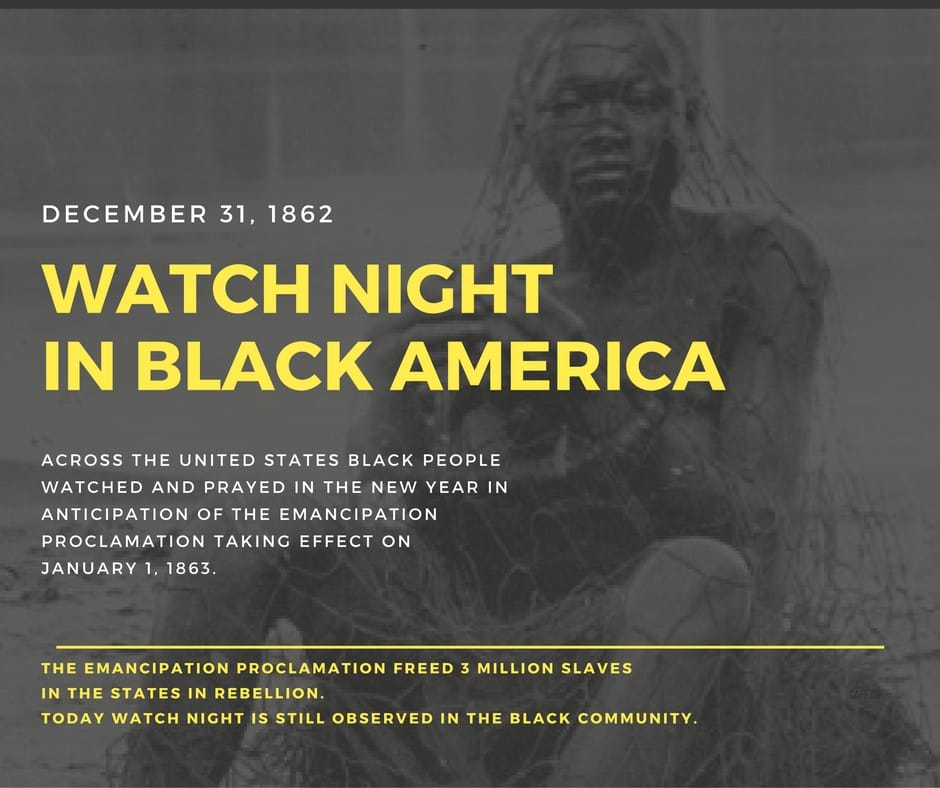
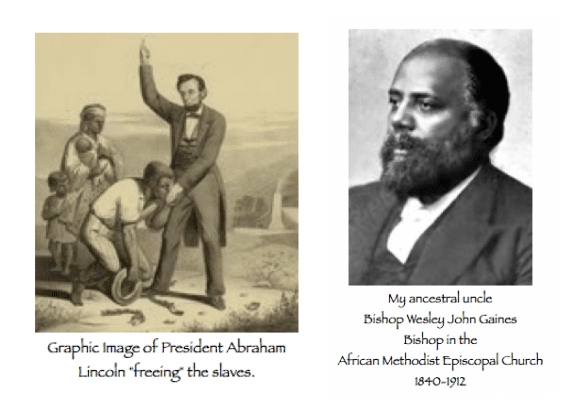
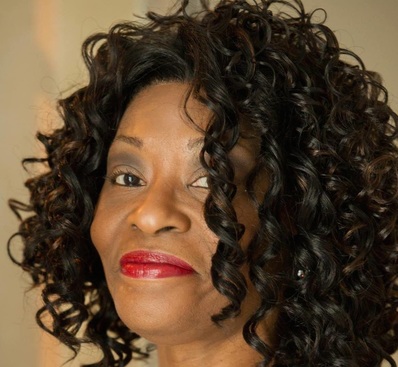
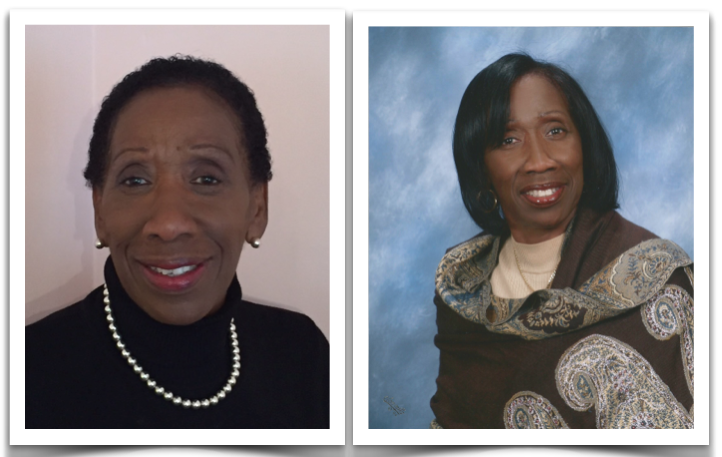
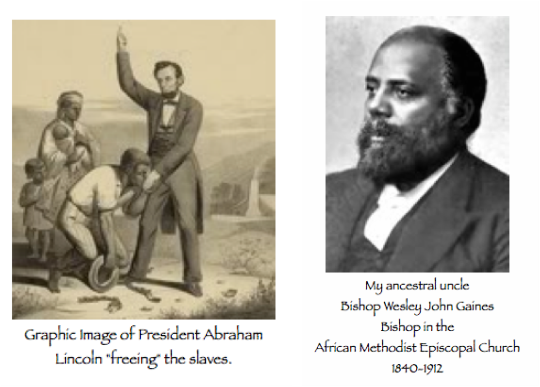
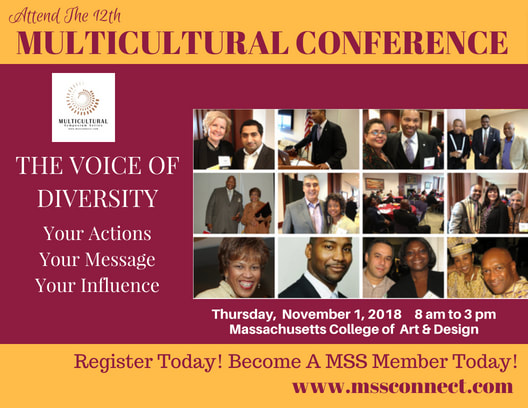
 RSS Feed
RSS Feed